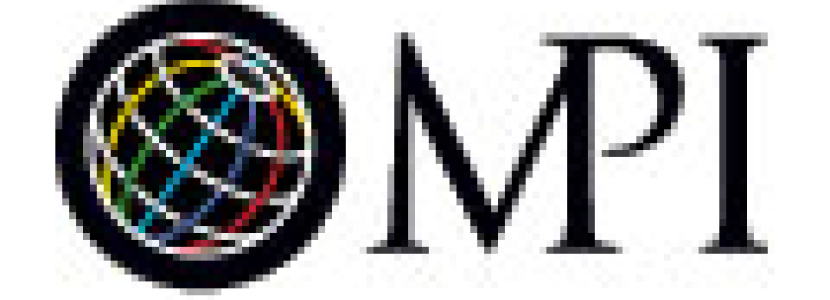
Meeting planners often welcome the media at their conferences as a win-win situation. Media coverage helps promote your client/company by publicizing topics that will benefit the general public and specific stakeholders. Also, media coverage provides exposure for speakers—some of whom may even appear at their own expense. Coverage promotes the products of exhibitors, the hotel and the city where the conference is held. The following are some associated best practices:
Before the Conference
Send out a series of news advisories to the media, starting two months or more before the conference. Develop an electronic press kit for your agency’s Web site. Mention that the media will have front row seats for at the conference. Make special pitches to the mainstream media as well as past media attendees and trade publications that normally cover your client’s or company’s topics.
Provide a profile of attendees and speakers. For example: Join nearly 500 of the leading technical authorities from industry and academia project managers from the federal, state, county, tribal and local governments as well as private sector administrations, policy makers, representatives from national organizations and others from around the world. Remember to highlight the names of known conference speakers.
Promote conference topics as breaking news. Send story ideas, visual opportunities and demonstrations. Use words and phrases such as “fresh look,” “interesting,” “emerging issues that will be driving the industry,” “just added,” “myriad of educational opportunities,” “in-depth learning forums” and “comprehensive exposition.” When the full agenda is available online, say so and promote local applications of conference topics.
U.S. media often attend conferences to get background information on actual events taking place in communities around the country. Event staff should help you identify local program personnel to interview. Media prefer actual events rather than concepts.
Send custom news releases to speakers’ hometown newspapers about their participation in the conference. Provide a space on the speakers’ applications for the conference to list their local media outlets.
Media Registration
Wave the registration fee for credentialed media and provide an online, advanced registration service specifically for them. Have a separate registration space for media at the conference and provide the media with a point of contact to arrange necessary passes and resolve special needs.
Typically, reporters and crews may attend if they represent general circulation newspapers, magazines, wire services, broadcast media and Web site media organizations or represent commercial publications funded by subscriptions or paid advertising. Freelance writers should present letters of assignment on official letterhead from editors of recognized publications. Limit the number of people from each media organization.
Prohibit industry sales representatives and members of public relations, advertising or marketing firms from registering as media.
Conference Media Policy
Media reporters and crew should wear special media passes at all times. Media are usually permitted to film the plenary sessions from the back of the room. They can also conduct private interviews with keynote speakers before or after their presentations. However, the media are prohibited from detaining or videotaping speakers arriving at the conference. Additionally, they should be prohibited from filming any security measures.
The media are not allowed to attend sessions and meetings that are designed as restricted, closed or by invitation only. Media are not permitted to ask questions or participate in discussions or affect the conference sessions. Media questions must be asked after the sessions. However, the media may participate and ask questions in the hands-on, ride-alongs and demonstrations. The media may be limited to pencil and paper during special sessions. Media should not be prohibited from attending any public meeting.
Media personnel are prohibited from selling, marketing or representing a company for the purpose of obtaining advertising or subscriptions from any registrant or exhibitor.
All advanced materials or interviews conducted with speakers before their scheduled sessions are embargoed until the material is presented or until after the date on the document. Speakers should be told that the media have been invited and are permitted to attend most sessions. Speakers must understand that their names, handouts and remarks may be published or placed on the Internet with or without personal contact with the media.
Media Room
Provide a media room for the media and their guests. Post the days and hours of operation. Provide multiple newsrooms when there are meeting locations at several hotels. Include ample workspace, T-1 lines (for high-quality, digital audio feeds), fax and copy machines, media kits, an interview area, extra electrical outlets, telephones and conference media information. For additional Wi-Fi availability, compatibility and pricing information, the media may contact the hotel directly.
Provide conference materials, schedules and updates along with refreshments and finger food. Develop poster-size reprints of articles, breaking news, keynote speakers and schedule changes. Provide guest room drops for updating media personnel.
Exhibitor’s Briefing
Conduct a walk through the exhibitor area with the media. Arrange short briefings with selected exhibitors who can stage action-oriented product demonstrations. Limit the media tour to about 10 vendors and stay on schedule. Ask exhibitors in their invitational letters to provide information (video footage or CD-ROMs) of their products that could be used in articles.
After the Conference
Gather photographs and news clips of media coverage for a package that will help promote the next conference to the media. Continue to be accommodating to the media after the conference and even accommodate the media that were unable to attend. Place conference highlights on your Web site.
Conclusion
Event planners (and public information officers) should be aware of all aspects of the conference and the topics being discussed in order to help the media with their particular needs.
JAMES J. ONDER, Ph.D., is a Washington, D.C.-based core communications services consultant, working with competency coaching and orphan communication topics. He can be reached at jimonder@hotmail.com.
VALERIE WILLIAMS is senior sales manager for the Crowne Plaza Hotel in Silver Spring, Md.




